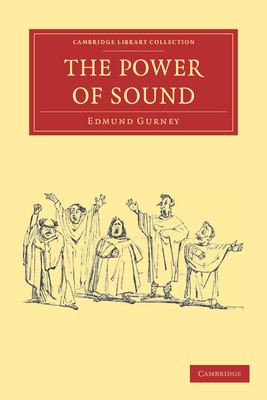
- We will send in 10–14 business days.
- Author: Edmund Gurney
- Publisher: Cambridge University Press
- ISBN-10: 1108038638
- ISBN-13: 9781108038638
- Format: 15.2 x 22.9 x 3.3 cm, minkšti viršeliai
- Language: English
- SAVE -10% with code: EXTRA
Reviews
Description
Edmund Gurney (1847-88) is today best known for his work on psychical research, but from a young age he harboured the ambition to be a composer and performer. Frustrated in this aim, he began writing on the philosophy and psychology of music. This work of 1880 was an attempt to apply a strictly scientific method of enquiry to music, and it is regarded as one of the most important and original treatises from the nineteenth century on musical aesthetics. Gurney discusses the sensations of pleasure and pain in relation to the senses, and goes on to examine how the listener differentiates between 'noises' and 'tones'. He explores whether there is an elemental difference between a 'good' and a 'bad' melody, the ultimate futility of the critic trying to describe music, and the 'moral' conclusion to be drawn from a preference for the music of Rossini over that of Beethoven.
EXTRA 10 % discount with code: EXTRA
The promotion ends in 23d.09:07:58
The discount code is valid when purchasing from 10 €. Discounts do not stack.
- Author: Edmund Gurney
- Publisher: Cambridge University Press
- ISBN-10: 1108038638
- ISBN-13: 9781108038638
- Format: 15.2 x 22.9 x 3.3 cm, minkšti viršeliai
- Language: English English
Edmund Gurney (1847-88) is today best known for his work on psychical research, but from a young age he harboured the ambition to be a composer and performer. Frustrated in this aim, he began writing on the philosophy and psychology of music. This work of 1880 was an attempt to apply a strictly scientific method of enquiry to music, and it is regarded as one of the most important and original treatises from the nineteenth century on musical aesthetics. Gurney discusses the sensations of pleasure and pain in relation to the senses, and goes on to examine how the listener differentiates between 'noises' and 'tones'. He explores whether there is an elemental difference between a 'good' and a 'bad' melody, the ultimate futility of the critic trying to describe music, and the 'moral' conclusion to be drawn from a preference for the music of Rossini over that of Beethoven.


Reviews